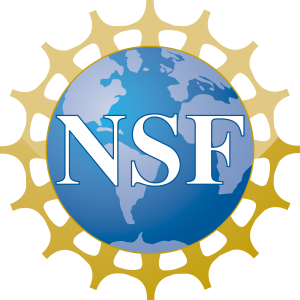 The following is a letter to the community from Margaret Martonosi Assistant Director of the National Science Foundation (NSF) Directorate of Computer & Information Science & Engineering (CISE) and Anne Kinney Assistant Director of the NSF Directorate Mathematical and Physical Sciences (MPS).
The following is a letter to the community from Margaret Martonosi Assistant Director of the National Science Foundation (NSF) Directorate of Computer & Information Science & Engineering (CISE) and Anne Kinney Assistant Director of the NSF Directorate Mathematical and Physical Sciences (MPS).
Dear Colleagues:
The field of quantum computing has seen substantial progress in recent years, with the development of next-generation quantum processors in the 50- to 100-qubit range. Realizing the promise of such processors requires significant capacity-building to prepare the next generation of quantum discoverers. In light of the quantum-computing developments in the private sector as well as the opportunity for further innovation in the academic setting, the National Science Foundation and Amazon Web Services, IBM, and Microsoft Quantum are coordinating to make available cloud-based quantum-computing platforms to advance research and build capacity in the academic setting. More information about the platforms is available below.
- Amazon Braket: https://aws.amazon.com/braket/
- IBM Quantum: https://www.ibm.com/quantum-computing/
- Microsoft Quantum: https://azure.microsoft.com/en-us/services/quantum/
With this Dear Colleague Letter (DCL), NSF’s Directorate for Computer and Information Science and Engineering (CISE) and the Directorate for Mathematical and Physical Sciences (MPS) wish to notify the community of their intention to support supplemental funding requests for active awards to enable use of these quantum-computing cloud platforms. NSF’s supplemental funding will support graduate-student time to work on these platforms. In parallel, Amazon Web Services, IBM, and Microsoft Quantum intend to make platform use available to recipients of these supplemental awards at no financial cost, pending a mutually agreeable arrangement between the principal investigators (PIs) and a given company.
This DCL is an initial pilot to build capacity among active NSF awardees, specifically through graduate students, to enable innovation in quantum computing. The community of CISE and MPS researchers who are not already leveraging such platforms are a particular focus for this DCL. Furthermore, publication and dissemination of research-relevant experiments, code, and tutorials are strongly encouraged to ensure broad community benefit.
Supplemental funding requests will be limited to research activities in one or more of the following research area(s):
- Quantum algorithms and their experimental realization;
- Quantum compiler and run-time infrastructure design;
- Fault-tolerant computing and other methods to boost the performance of existing quantum-computing hardware;
- Benchmarking of architectures, systems, algorithms, and scalable error-correction techniques;
- Quantum simulations, optimizations, cryptography, and machine learning; and
- Demonstrations of feasibility for applications of quantum algorithms.
Each PI should describe in the supplemental funding request how the work of the graduate student(s), in combination with quantum cloud platform access, will build upon and extend research activities beyond those described in the original award. Additionally, PIs should describe any prior use of such platforms, if any, and how the requested supplemental funding will build upon that prior use.
The supplemental funding request may not exceed $50,000 and is intended to support students only for a duration of up to one year. The work to be performed on the quantum computing cloud platform should be described in the request.
In the supplemental funding request, PIs must submit a (a) document detailing the technology (superconducting qubits, trapped ions, silicon spin qubits and/or microwave pulse control) and planned level of cloud resources (e.g., number of hours, number of qubits and the cloud platform(s), number of individual instance of users, and/or other metrics) and (b) letter of support from one of the three cloud providers listed above.
Prior to submission of a supplemental funding request, PIs should reach mutually agreeable terms with the cloud provider(s) noted above, in order to secure the commitment of the cloud provider(s) to enable access rights to the system. PIs selected for funding will be notified by NSF and may subsequently contact the corresponding Point of Contact (PoC) listed below to initiate access. PIs may also contact these individuals at Amazon Web Services, IBM, and Microsoft Quantum with questions regarding the platform and resources offered, and should work with them to secure the letter of support that must be included in the supplemental funding request.
- Sanjay Padhi, Amazon Web Services, email: sanpadhi@amazon.com
- Sebastian Hassinger, IBM, email: Sebastian.Hassinger@ibm.com
- Linda Lauw, Microsoft Quantum, email: llauw@microsoft.com
For all NSF awards, grantees must submit annual project reports to NSF. In addition to the standard requirements, annual reports must provide a detailed accounting of the project’s use of quantum cloud resources and students’ time.
Supplemental funding requests pursuant to this DCL are welcome through June 18, 2020, but earlier submissions are encouraged. This opportunity is open to PIs and co-PIs with active awards from the research areas described in this DCL. Requests should be prepared in accordance with the guidance in Chapter VI.E.4 of the NSF Proposal & Award Policies & Procedures Guide (PAPPG) and submitted electronically via the NSF FastLane system. NSF will manage the review of supplemental funding requests. Amazon Web Services, IBM, and Microsoft Quantum will have no role in the review and selection process, and proposals will not be shared with Amazon Web Services, IBM, or Microsoft Quantum.
NSF will notify PIs selected for funding, at which point PIs should re-engage as negotiated with the Amazon Web Services, IBM, and Microsoft Quantum PoCs above to begin using the resources described in the proposal.
PIs interested in submitting supplemental funding requests or with questions pertaining to this DCL are strongly encouraged to contact one of the following program directors prior to submitting:
- Almadena Chtchelkanova, Program Director, CISE, telephone: (703)-292-7498, email: achtchel@nsf.gov
- Vipin Chaudhary, Program Director, CISE, telephone: (703) 292-2254, email: vipchaud@nsf.gov
- Bogdan Mihaila, Program Director, MPS, telephone: (703) 292-8235, email: bmihaila@nsf.gov
- Richard Dawes, Program Director, MPS, telephone: (703) 292-7486, email: rdawes@nsf.gov
- Yulia Gorb, Program Director, MPS, telephone: (703) 292-2113, email: ygorb@nsf.gov
Sincerely,
Margaret Martonosi
Assistant Director, CISE
Anne Kinney
Assistant Director, MPS









